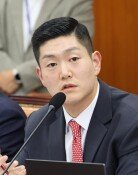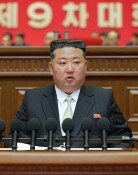Nonessential budget items should be cut to finance emergency relief fund
Nonessential budget items should be cut to finance emergency relief fund
Posted April. 29, 2020 07:32,
Updated April. 29, 2020 07:33
The National Assembly Budget Settlement Committee began reviewing Tuesday the second extra budget bill aimed at paying emergency disaster relief fund with Prime Minister Chung Sye-kyun and Finance Minister Hong Nam-ki in attendance. The ruling and opposition parties agreed to offer one million won to each household, but financing the aid package is not an easy matter.
Additional 4.6 trillion won is needed to provide all households with the fund compared to the initial plan of offering the relief money to the bottom 70 percent income bracket. The government and the ruling party said that 1 trillion won will be covered by local expenses and the rest 3.6 trillion won will be covered by issuing national bonds. But there are no efforts to readjust budget spending, such as reduce items or cut amount in the existing budget plan.
If the government and political parties are willing to reduce the national debt even by a small amount, nonessential budget items can be cut or postponed to after next year. Last year, 7.9 trillion won in the national budget has not been used either because some projects were impractical to begin with or because of lack of preparations.
The items that should be put on the top of the budget cut list are the so-called “note budget” by lawmakers. These are the items that were not included in the government’s budget plan or rejected by the National Assembly Standing Committee but later got included in the budget plan somehow during a review by the Special Committee on Budget and Accounts. These items normally involve civil complaints in local constituencies. But some of the “note budget” items included in this year’s budget plan were nonessential projects that can be postponed, such as 2.3 billion won for the remodeling of the National Assembly building or 1.4 billion won for the renovation of the National Assembly wedding hall.
These “note budget” items are poorly executed since they were not properly reviewed in the first place. Out of the 241 budget items newly added to the budget plan during the national assembly review process between 2016 and 2018, 58 items used less than 50 percent of their budget and 40 cases did not even use a penny. There will be many such poor budget items on this year’s budget plan as well. The government should cut these items and use the budget for urgent tasks, such as maintaining employment, supporting the livelihoods of people, and preventing corporate bankruptcy.
Despite the circumstances, the Ministry of Strategy and Finance seems to be hesitant to come up with a list of budget cuts. When the situation is urgent, the government should take care of its people first. The government debt stood at 728.8 trillion won at the end of last year. After a third supplementary budget is drawn up this year, 120.3 trillion won will be added to the debt. There is no doubt that these extra budgets will exacerbate the country’s financial integrity and put a burden on future generations. Now that the decision is made, the government and political parties should promptly implement the disaster relief fund without a delay but cut nonessential items in the budget with firm determination.







